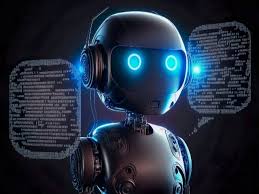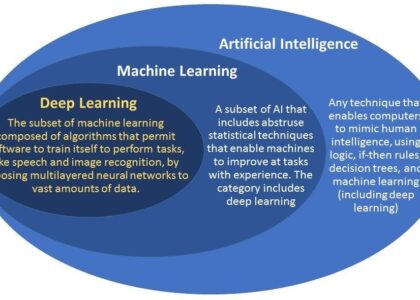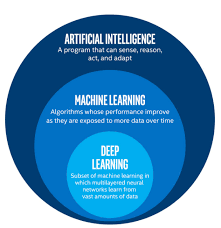The Rise of AI Technology: Transforming the Future
Artificial Intelligence (AI) technology has rapidly evolved over the past few decades, becoming a pivotal force in shaping various industries. From healthcare to finance, AI is transforming how businesses operate and how people interact with technology.
What is AI Technology?
AI technology refers to the development of computer systems that can perform tasks typically requiring human intelligence. These tasks include speech recognition, decision-making, language translation, and visual perception. By leveraging machine learning algorithms and vast amounts of data, AI systems can learn and adapt over time, improving their performance and accuracy.
Applications of AI Technology
The applications of AI are vast and varied. In healthcare, AI is used to analyse medical images for early diagnosis of diseases such as cancer. In finance, algorithms help detect fraudulent transactions and assess credit risks. In retail, personalised recommendations enhance customer experience by suggesting products based on browsing history and preferences.
Moreover, autonomous vehicles are a testament to the power of AI in revolutionising transportation. These vehicles use complex algorithms to interpret sensor data and navigate roads safely without human intervention.
The Impact on Employment
One of the most debated topics surrounding AI technology is its impact on employment. While some fear that automation may lead to job displacement, others argue that it will create new opportunities in tech-driven sectors. As routine tasks become automated, there will be an increased demand for skilled professionals who can develop and maintain these advanced systems.
Ethical Considerations
With great power comes great responsibility. The rise of AI technology also brings ethical considerations that must be addressed. Issues such as data privacy, algorithmic bias, and transparency are critical in ensuring that AI systems are fair and beneficial for all users.
Organisations must prioritise ethical guidelines when developing AI technologies to prevent misuse or unintended consequences.
The Future of AI Technology
The future of AI technology is both exciting and unpredictable. As research continues to advance at a rapid pace, we can expect even more innovative applications across various sectors. From enhancing productivity to solving complex global challenges like climate change, the potential for positive impact is immense.
In conclusion, while challenges remain in terms of ethics and employment impacts, embracing AI technology offers significant opportunities for growth and improvement across multiple domains. By fostering a collaborative approach between humans and machines, society can harness the full potential of this transformative technology.
Exploring AI Technology: Key Questions Answered
- How do I become an AI Tech?
- What do you mean by AI technology?
- Who is the father of AI?
- What does an AI tech do?
- What does AI Tech do?
- How is AI used today?
How do I become an AI Tech?
Becoming an AI tech professional involves a combination of education, practical experience, and continuous learning. Start by pursuing a degree in computer science, mathematics, or a related field, as these disciplines provide a strong foundation in programming and analytical thinking. It is essential to gain proficiency in programming languages such as Python and R, which are commonly used in AI development. Additionally, understanding machine learning algorithms and data analysis techniques is crucial. Engaging in online courses or certifications focused on AI technologies can further enhance your knowledge and skills. Practical experience through internships or personal projects will help you apply theoretical concepts to real-world problems. Staying updated with the latest advancements in AI by following relevant publications and participating in forums or workshops is also vital for success in this rapidly evolving field.
What do you mean by AI technology?
AI technology refers to the development and implementation of computer systems designed to perform tasks that typically require human intelligence. These tasks include understanding natural language, recognising patterns, solving problems, and making decisions. By utilising advanced algorithms, machine learning techniques, and large datasets, AI systems can learn from experience and improve their performance over time. This technology is applied across various fields such as healthcare, finance, and robotics, enabling machines to operate autonomously or assist humans in complex activities. Ultimately, AI technology aims to enhance efficiency and innovation by mimicking cognitive functions associated with the human mind.
Who is the father of AI?
The title “father of AI” is often attributed to John McCarthy, a prominent computer scientist who played a crucial role in the development of artificial intelligence as a field. In 1956, McCarthy organised the Dartmouth Conference, which is considered the founding event of AI as an academic discipline. During this conference, he coined the term “artificial intelligence,” marking the beginning of formal research into creating machines capable of simulating human intelligence. McCarthy’s contributions laid the groundwork for future advancements in AI technology, and his vision continues to influence researchers and innovators in the field today.
What does an AI tech do?
An AI tech, or artificial intelligence technician, plays a crucial role in the development and maintenance of AI systems. They are responsible for implementing machine learning models, managing data processing pipelines, and ensuring the smooth operation of AI software and hardware. Their work involves collaborating with data scientists to refine algorithms, troubleshooting technical issues, and optimising system performance. Additionally, AI techs stay abreast of the latest advancements in AI technologies to integrate new features and enhancements into existing systems. By doing so, they help organisations leverage AI to improve efficiency, drive innovation, and gain a competitive edge in their respective industries.
What does AI Tech do?
AI technology is designed to mimic human intelligence in order to perform a wide range of tasks. It involves the development of computer systems capable of learning, reasoning, and self-correction. AI tech can process and analyse large volumes of data quickly and accurately, making it invaluable for tasks such as data analysis, pattern recognition, and decision-making. In practical terms, AI tech powers everything from virtual assistants like Siri and Alexa to more complex systems such as autonomous vehicles and advanced robotics. It is also used in industries like healthcare for diagnostic purposes, in finance for fraud detection, and in customer service through chatbots. By automating routine tasks and providing insights through data analysis, AI technology enhances efficiency and enables innovative solutions across various sectors.
How is AI used today?
Today, AI is utilised across a multitude of sectors to enhance efficiency, accuracy, and innovation. In healthcare, AI algorithms assist in diagnosing diseases by analysing medical images and predicting patient outcomes. In the financial industry, AI is employed to detect fraudulent activities and automate trading processes. Retailers use AI-driven recommendation systems to personalise shopping experiences for customers based on their preferences and behaviour. Additionally, AI powers virtual assistants like Siri and Alexa, which help users manage daily tasks through voice commands. Autonomous vehicles rely on AI to interpret sensor data for safe navigation. Furthermore, AI plays a crucial role in natural language processing applications such as translation services and chatbots, improving communication across languages and platforms. Overall, the integration of AI technology into various fields is transforming how businesses operate and how individuals interact with technology daily.






